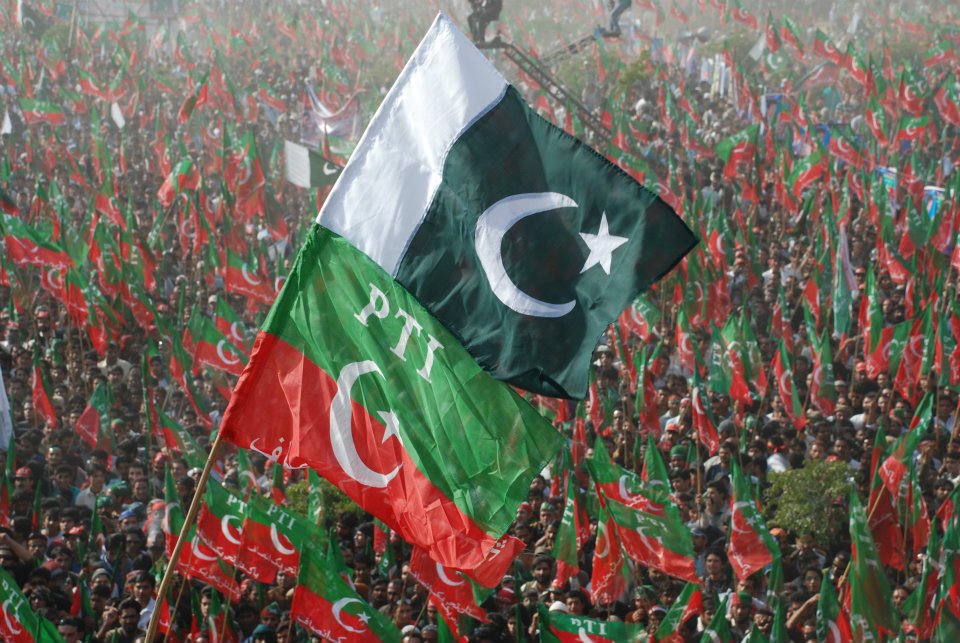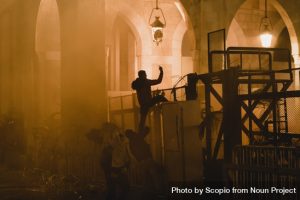Growing Pains of Democracy: Elections, Political and Economic Unrest in Pakistan

PTI Flag among supporters. Credit Noria Research
By Yousaf K
Pakistan, one of the world’s youngest, still fledgling, and fragile democracies, held its general elections on February 8, 2024. The country – population just over 240 million – conducted elections in the backdrop of economic unrest, natural disasters, terror attacks, and political arrests, including the detention of the former Prime Minister Imran Khan, who was banned from running, despite his popularity. Following a failed petition to reverse the Election Commission of Pakistan’s decision to deprive Khan’s Pakistan Tehreek e Insaf (PTI) of symbol a week before the elections, the Supreme Court upheld the ruling, forcing all his candidates to contest independently. Many were kidnapped by the so-called interim government, however, despite the odds, the newly independents won a majority of the seats throughout the country.
After the former Prime Minister’s arrest on May 9, 2023, anyone associated with PTI was rashly criminalized. Businesses and homes were raided; false inquiries initiated; and thousands were arrested to deter rallies and protests. Dozens of PTI social media activists and leaders went into seclusion to evade possible arrest. Many candidates were relegated to fighting court battles for bail and, due to compromised court decisions, were subsequently unable to campaign in the polls. Only days before the election, Khan himself was convicted on various charges, and sentenced to 31 years in prison.
It was the first time in the history of the country that over 60 million voters had turned out to vote against establishment-backed parties.
In October 2023, the military-backed three-time former Prime Minister Nawaz Sharif returned from self-exile just in time to seek a fourth term. Before elections, he was given ministerial protocols by the military establishment. However, on February 8, millions of Pakistanis turned the tables for Imran Khan when they emphatically voted for his PTI party. Going against the plans of the military-political alliance, the public nearly succeeded in ending the hybrid regime after 76 years. It was the first time in the history of the country that over 60 million voters had turned out to vote against establishment-backed parties. As a result, the hybrid regime refused to accept the defeat. Even days after the elections, the winning candidates’ results have been manipulated to favor establishment-backed parties. Knocking at the doors of courts, the losing opponents remain hopeful that justice will ultimately prevail.
These maneuvers in results have been reported by international media and foreign legislators. European Union, the UN Secretary General, and U.S State Department have also showed concerns about the legitimacy of the elections and stressed on the transparent transfer of power. However, will the powerful military be flexible enough to yield to these demands? For the time being, it does not seem it will.
Pakistan, narrowly escaping economic default in 2023 with the assistance of International Monetary Fund’s (IMF) standby short-term bailouts, is now facing looming deadlines in the next month. Khan, in a surprise move, confirmed he has written a letter to the IMF urging them to conduct an independent audit of the February 8th polls. His legal advisor, Ali Zafar, stressed the democratic values and good governance, including the conduct of transparent elections, as prerequisites for IMF’s bailout packages.
On the other hand, FITCH, one of the “Big Three credit rating agencies”, hinted at a possible delay in discussions with the IMF due to political instability. Public skepticism could remain high if PTI is sidelined despite their outsized support.








